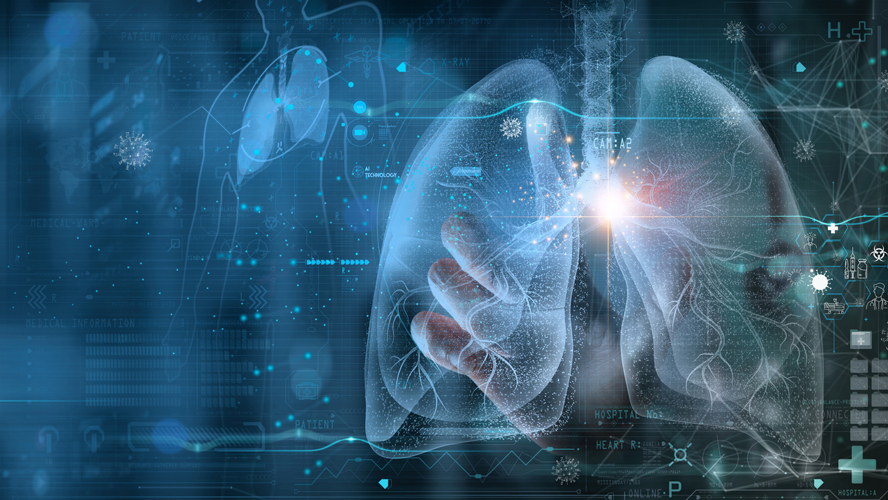
Evaluating donor organs for transplantation is a complex yet essential process requiring detailed assessments of organ viability. Researchers from UHN’s Toronto General Hospital Research Institute are revolutionizing lung transplantation by employing artificial intelligence (AI) to improve the accuracy and consistency of organ evaluations.
This research builds on the ex vivo lung perfusion (EVLP) technique developed at UHN, which keeps donor lungs functional outside the body. Unlike conventional chest X-rays, EVLP allows doctors to examine the lungs, free from typical obstructions.
Using a novel machine learning approach—a convolutional neural network—researchers analyzed over 1,300 EVLP X-rays to identify patterns associated with lung injury and transplant outcomes. This method mimics a surgeon’s decision-making process by identifying changes in the X-rays over time. It significantly improves predictions of post-transplant outcomes, such as a patient’s ability to breathe independently after surgery.
Harnessing the potential of AI, this novel approach could eliminate the need for on-site expert radiologists, enabling EVLP centres worldwide to assess donor lungs more efficiently and accurately. This breakthrough could expand the organ donor pool, improve surgical outcomes, and reduce complications, paving the way for more advanced AI applications in organ transplantation and precision medicine.
Dr. Shaf Keshavjee, the senior author of this study, is a Senior Scientist at the Toronto General Hospital Research Institute and the Director of UHN’s Latner Thoracic Surgery Research Laboratories and Toronto Transplant Program. At the University of Toronto, Dr. Keshavjee is the Professor and Vice Chair of Innovation in the Department of Surgery at the University of Toronto.
This work was supported by UHN Foundation and the Temerty Centre for AI Research and Education in Medicine (T-CAIREM) at the University of Toronto.
Dr. Shaf Keshavjee serves as Chief Medical Officer of Traferox Technologies and reports personal fees from Lung Bioengineering, outside of the submitted work. Drs. Keshavjee, Sage, McInnis, Cypel, and Wang have ongoing patent applications with UHN related to the machine learning modules used in this study. Read the article (link is external) for the detailed conflict of interest statement.
Chao BT, Sage AT, McInnis MC, Ma J, Grubert Van Iderstine M, Zhou X, Valero J, Cypel M, Liu M, Wang B, Keshavjee S. Improving prognostic accuracy in lung transplantation using unique features of isolated human lung radiographs. (link is external) NPJ Digit Med. 2024 Oct 3. doi: 10.1038/s41746-024-01260-z.




